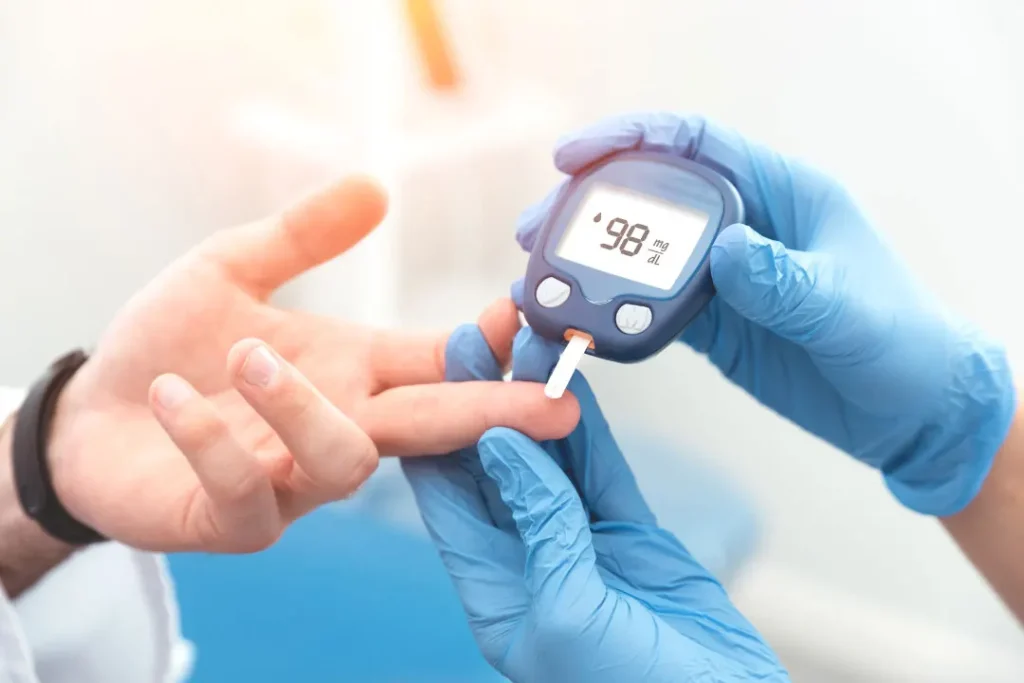One of the important functions that chromium serves in the human body is in the area of nutrition. It is an important element that may be found in trace amounts inside the human body and contributes in a variety of ways to the body’s physiological functions. Despite the amount of chromium that ought to be consumed on a daily basis is not nominal, the importance of this mineral to one’s general health and well-being is prolific.
You May Also Like:
DELTA BrainLuxury™ Wins Best Sleep Support Supplement Product
Focus: The Best Supplement Ingredients To Upgrade Your Productivity And Performance
Chromium: Benefits, Dosage, Side Effects, Drug Interactions, and Other Important Information is an original (NootropicsPlanet) article.
The Nature of Chromium
Trivalent chromium, also known as Cr3+, and hexavalent chromium, sometimes known as Cr6+, are the two primary forms of chromium that are relevant from a biological standpoint. The former is a physiologically active form that may be found in food as well as dietary supplements, and it is essential for the health of humans. This latter kind is a particularly hazardous byproduct of industrial pollution.
The concentration of chromium in the body is maintained at a specific level by carefully regulating both its absorption and its excretion. The absorption of chromium, which takes place in the small intestine, is relatively low (less than 2%), and it is affected by multiple variables, one of which is the makeup of the food. After that, the mineral is retained in a variety of organs, including the liver, kidneys, and spleen, before eventually being expelled from the body via the urine.
Health Benefits of Chromium
Through its activity in the insulin-signaling pathways, chromium plays a huge part in the metabolism of macronutrients, most especially carbs and lipids. Insulin is a hormone that controls the amount of sugar in the blood and plays an important part in the process of producing energy. As a co-factor, chromium helps insulin do its job more effectively and facilitates the transfer of glucose into cells.
In individuals with type 2 diabetes as well as in those with impaired glucose tolerance, chromium supplementation seems to have a good impact on glycemic management, according to the findings of a number of studies. This possible advantage may be attributable to the function that chromium plays in increasing insulin sensitivity, which ultimately results in improved glucose absorption by cells.

Some evidence alludes to chromium being useful in the context of the health of the cardiovascular system. It is thought that chromium could help modify cholesterol and triglyceride levels, hence contributing to a lower risk of cardiovascular illnesses. The particular processes involved are not entirely known, but it is generally believed that this is how chromium might aid humans.
Chromium has also been connected with weight management and body composition, with some studies showing that it might help the growth of lean muscle mass while simultaneously assisting in the removal of fat. These findings, however, need to be regarded with care due to the findings of many numerous consistent studies.
The Chemistry of Chromium
The transition metal chromium has an atomic number of 24, placing it in Group 6 of the Periodic Table. The oxidation states of this metal range from -2 to +6, although the most stable and widespread forms are the trivalent (Cr(III)) and hexavalent (Cr(VI)). While Cr(VI) is often harmful and carcinogenic, Cr(III) is physiologically active and regarded as a crucial trace element for the human body.
Due to its electronic structure, Cr(III) is known to form a number of complexes with biological ligands, facilitating interactions with diverse biomolecules. Chromium picolinate, which combines chromium with picolinic acid, is a noteworthy compound. This compound is often used as a dietary supplement and improves the bioavailability of chromium.

Active Physiological Mechanisms of Chromium
The primary reason for the importance of chromium to human health is the function that it plays in the metabolism of carbohydrates, lipids, and proteins. Insulin, a hormone that is responsible for controlling levels of glucose in the blood, has its effect amplified by this substance.
Chromium enhances insulin signaling by boosting the process of phosphorylation and raising the activity of insulin receptor substrates (IRS), which eventually promotes glucose absorption into cells.
The precise method by which chromium exerts its insulin-enhancing effect is still only nominally understood, however it is possible that this process involves the element’s interaction with a low-molecular-weight chromium-binding molecule (also known as chromodulin). When coupled with Cr(III), chromomodulin increases the tyrosine kinase activity of insulin receptors, which in turn improves insulin sensitivity.
Optimal Dosage of Chromium
Depending on your age and gender, the Recommended Dietary Allowance (RDA) for chromium in an adult’s diet is anything from 20 to 30 micrograms per day. However, the appropriate dose for chromium supplements has not been conclusively determined and may vary from person to person depending on factors such as their age, state of health, and the amount of chromium in their diet.
Nevertheless, it is of the utmost importance to keep in mind that research into the efficacy of these larger dosages is still ongoing, and that one should only take them under the supervision of a trained specialist.
Side Effects and Safety Considerations of Chromium
Oral supplementation with trivalent chromium is generally believed to be safe, with minimal instances of adverse effects being documented. However, taking excessive amounts of chromium (more than one thousand micrograms per day) may cause:
- Stomach distress
- Low blood sugar (hypoglycemia)
- Skin irritation
- Damage to the kidneys or liver
In addition, there is a very uncommon hereditary condition known as chromium deficiency, which is characterized by reduced glucose tolerance and high circulating insulin. This condition does not normally pose a threat to the general population.

Potential Substance Interactions with Chromium
There is a possibility that chromium will interfere with the way that some drugs work or how well they work. Antacids, corticosteroids, H2 blockers, proton pump inhibitors, and medicines for diabetes (insulin, metformin) are some examples of drugs that may interfere with chromium absorption or accelerate chromium excretion, all of which may result in decreased chromium levels in the body.
On the other hand, chromium has the ability to influence the behavior of other chemicals. It is possible, for instance, that it will intensify the impact of insulin or one of the other diabetic drugs, which might result in hypoglycemia. Before beginning chromium supplementation, it is best to discuss this decision with a qualified medical professional, particularly for those who have diabetes or who are already taking specific drugs.
Best Responsible Use of Chromium
Chromium is an essential mineral for your health, especially because of the function it plays in the metabolism of macronutrients as well as the action of insulin. Even if there is reason to be optimistic about the possible advantages of using chromium supplements, further study is required to comprehend the entire scope of their effects and to determine the appropriate doses.
Chromium supplementation should be taken carefully and under the advice of a healthcare expert. This is especially true if you have chronic health issues, are taking specific drugs, or if you have type 2 diabetes. In the end, eating a balanced diet will continue to be the most efficient strategy to fulfill the body’s requirements for chromium.

Chromium: Conclusion
The chemical element, chromium, can undoubtedly be helpful for you, if consumed in regimented amounts. Luckily, many types of foods will contain chromium in trace amounts, such as meat, vegetables, nuts, spices, fruits, grains, and even beer and wine.
For many people, those food categories will be sufficient sources for naturally occurring chromium content. However, it can be worth your while to entertain higher, controlled doses of chromium to offset imbalances and aid the process of insulin action in your body.
Take small steps to include more chromium in your diet, and make sure to keep your healthcare provider closely involved with your experiment.
References:
- “The Role of Chromium in Insulin Resistance.” Retrieved from: https://www.ncbi.nlm.nih.gov/pmc/articles/PMC3308119/
- “Food Sources for Magnesium and Chromium” Retrieved from: https://www.beaumont.org/conditions/magnesium-chromium-sources
- “Chromium Fact Sheet for Health Professionals” Retrieved from: https://ods.od.nih.gov/factsheets/Chromium-HealthProfessional/
- “Effect of chromium on carbohydrate and lipid metabolism in a rat model of type 2 diabetes mellitus: the fat-fed, streptozotocin-treated rat” Retrieved from: https://www.sciencedirect.com/science/article/abs/pii/S0026049507001588
Important Note: The information contained in this article is for general informational purposes only, and should not be construed as health or medical advice, nor is it intended to diagnose, prevent, treat, or cure any disease or health condition. Before embarking on any diet, fitness regimen, or program of nutritional supplementation, it is advisable to consult your healthcare professional in order to determine its safety and probable efficacy in terms of your individual state of health.
Regarding Nutritional Supplements Or Other Non-Prescription Health Products: If any nutritional supplements or other non-prescription health products are mentioned in the foregoing article, any claims or statements made about them have not been evaluated by the U.S. Food and Drug Administration, and such nutritional supplements or other health products are not intended to diagnose, treat, cure, or prevent any disease.


